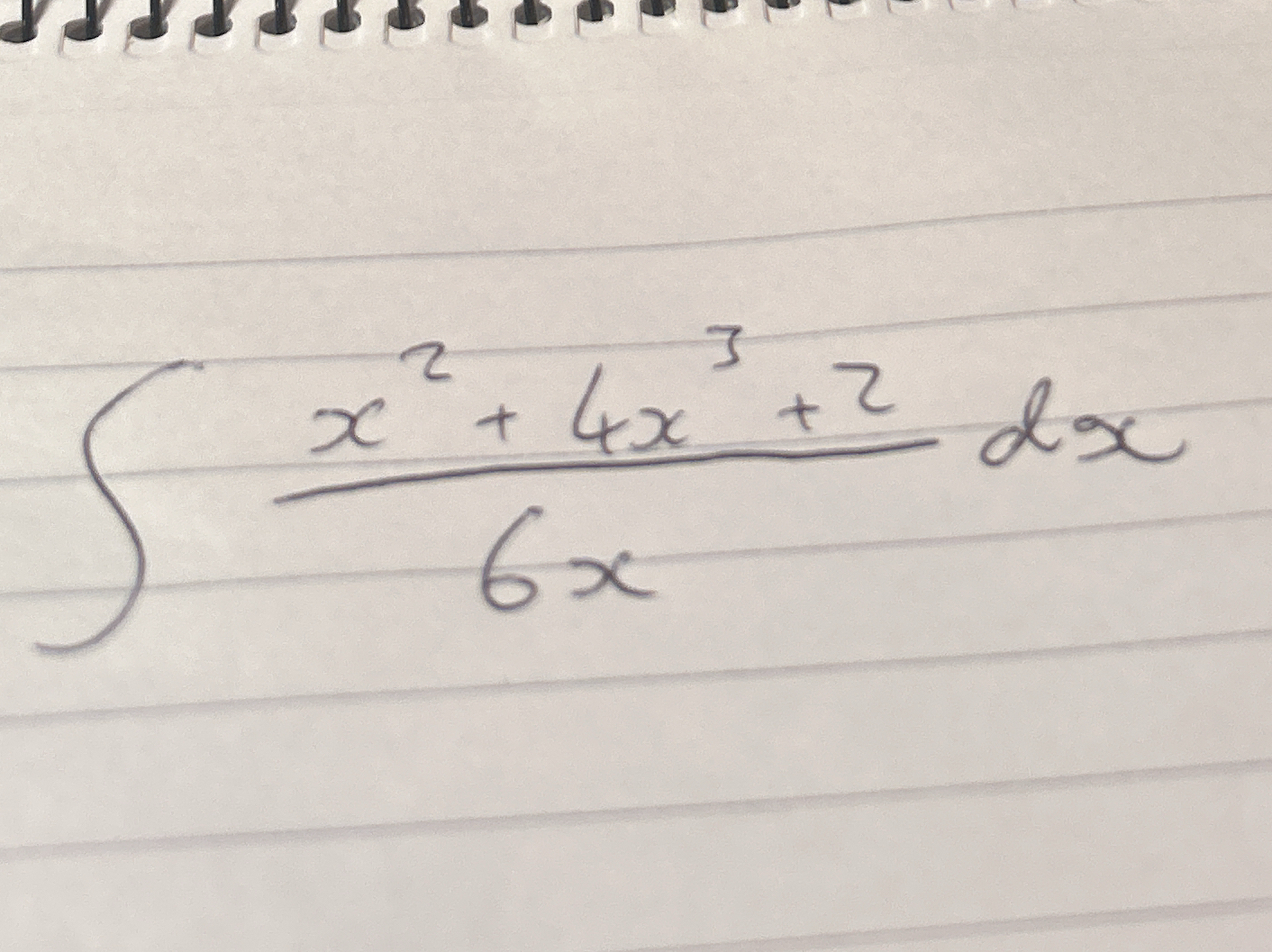∫ (x^2 + 4x^3 + 2) / (6x) dx

Understand the Problem
The question is asking to solve the integral of a polynomial function divided by a linear function. The integral involved here requires step-by-step calculations.
Answer
The solution to the integral is: $$ \frac{x^2}{12} + \frac{2x^3}{9} + \frac{1}{3} \ln |x| + C $$
Answer for screen readers
The integral evaluates to:
$$ \int \frac{x^2 + 4x^3 + 2}{6x} , dx = \frac{x^2}{12} + \frac{2x^3}{9} + \frac{1}{3} \ln |x| + C $$
Steps to Solve
- Simplify the expression
To simplify the integral, we divide each term in the numerator by the denominator:
$$ \frac{x^2}{6x} + \frac{4x^3}{6x} + \frac{2}{6x} = \frac{x}{6} + \frac{2}{3}x^2 + \frac{1}{3x} $$
- Set up the integral
Now rewrite the integral with the simplified expression:
$$ \int \left( \frac{x}{6} + \frac{2}{3}x^2 + \frac{1}{3x} \right) dx $$
- Integrate each term separately
Next, integrate each term one by one:
- For ( \frac{x}{6} ):
$$ \int \frac{x}{6} , dx = \frac{1}{6} \cdot \frac{x^2}{2} = \frac{x^2}{12} $$
- For ( \frac{2}{3}x^2 ):
$$ \int \frac{2}{3}x^2 , dx = \frac{2}{3} \cdot \frac{x^3}{3} = \frac{2x^3}{9} $$
- For ( \frac{1}{3x} ):
$$ \int \frac{1}{3x} , dx = \frac{1}{3} \ln |x| $$
- Combine the results
Now, combine all the integrated terms:
$$ \int \left( \frac{x}{6} + \frac{2}{3}x^2 + \frac{1}{3x} \right) dx = \frac{x^2}{12} + \frac{2x^3}{9} + \frac{1}{3} \ln |x| + C $$
where ( C ) is the constant of integration.
The integral evaluates to:
$$ \int \frac{x^2 + 4x^3 + 2}{6x} , dx = \frac{x^2}{12} + \frac{2x^3}{9} + \frac{1}{3} \ln |x| + C $$
More Information
This integral combines polynomial and logarithmic terms. It illustrates the use of basic integration techniques and simplifies the more complex rational function step-by-step. The use of the natural logarithm arises from integrating the function ( \frac{1}{x} ).
Tips
- Forgetting to simplify the fraction before integrating.
- Mixing up the constant during integration or omitting the constant ( C ).
- Failing to recognize the form of ( \frac{1}{x} ) that leads to a logarithm.
AI-generated content may contain errors. Please verify critical information